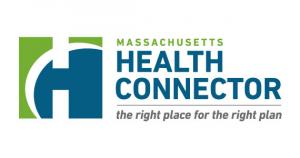Massachusetts: Health Connector seeks to protect affordable, accessible health care in Massachusetts

via the Massachusetts Health Connector:
Advocating for Massachusetts residents and maintaining access to affordable coverage for everyone, the Massachusetts Health Connector on Friday submitted a comment letter to a proposed federal rule from the Centers for Medicare and Medicaid Services.
The letter focuses on proposals in the federal rule that would impact eligibility and enrollment functions for the Health Connector as well as policies in the larger insurance market. Massachusetts leads the nation in coverage rate, with more than 98 percent of residents covered according to the U.S. Census, and provisions in the rule would make it more difficult for residents to get and maintain coverage, while making coverage more expensive.
“Massachusetts is proud to have the best health care system and the most people enrolled in health care coverage in the nation. The Health Connector has made great strides in recent years to expand access to affordable health care coverage to more residents than ever before,” said Governor Maura Healey. “But this proposed rule from the Trump Administration threatens to roll back that progress and drive-up health care costs. I applaud the Health Connector for submitting comments opposing this and advocating for the people of Massachusetts.”
“State Marketplaces like the Health Connector have thrived by having the flexibility to best serve their residents and local markets with tailored policies and structures that maximize enrollment and affordability,” said Audrey Morse Gasteier, the Executive Director of the Massachusetts Health Connector. “Our comment letter raises the alarm about key provisions of the rule that would drive up premiums, hinder enrollment, and create additional administrative burdens and cost to the Health Connector and our members. The letter advocates for maintaining existing policies and flexibilities that have enabled Massachusetts to have the highest rate of coverage in the nation, the healthiest population, and among the lowest Marketplace premiums in the country, all while maintaining the highest program integrity standards.”
In the comment letter filed Friday, the Health Connector highlights a number of proposed changes in the federal rule that would negatively impact the Health Connector and erode residents’ ability to access coverage. These changes would harm the state’s risk pool and increase premiums, create significant operational costs on an unworkable timeline for implementation, and limit authority for states to manage their own health insurance markets. The rule proposes solutions to problems Massachusetts does not have. Those proposed changes include:
- Changes to the renewal process could restrict automatic renewals, making it more difficult for current members to maintain coverage.
- A shorter Open Enrollment period from Nov. 1 through Dec. 15 would eliminate nearly half of the Health Connector’s current Open Enrollment period, sizably limiting opportunities to enroll.
- Changes in income verification processes would require additional action by members and create barriers to enrollment.
- Changes would likely result in higher cost-sharing limits and lower federal subsidies, making members’ coverage and out-of-pocket costs more expensive.
- Eligibility changes would exclude Deferred Action of Childhood Arrival recipients from Marketplace coverage.
- A prohibition on including gender affirming care as an Essential Health Benefit would potentially limit access, remove cost-sharing protections, and increase premiums for all enrollees.
The Health Connector is committed to furthering the goals of the Commonwealth to provide access to affordable health coverage, maintain a healthy risk pool in our merged market, and promote inclusion and equitable access among our members. As of Friday morning, more than 20,000 comments had been filed on the rule, with the Health Connector joining state-based Marketplaces, the National Association of Insurance Commissioners, carriers, providers, advocates, state Attorneys General, and other stakeholders in responding to the rule.
How to support my healthcare wonkery:
1. Donate via ActBlue or PayPal
2. Subscribe via Substack.
3. Subscribe via Patreon.



